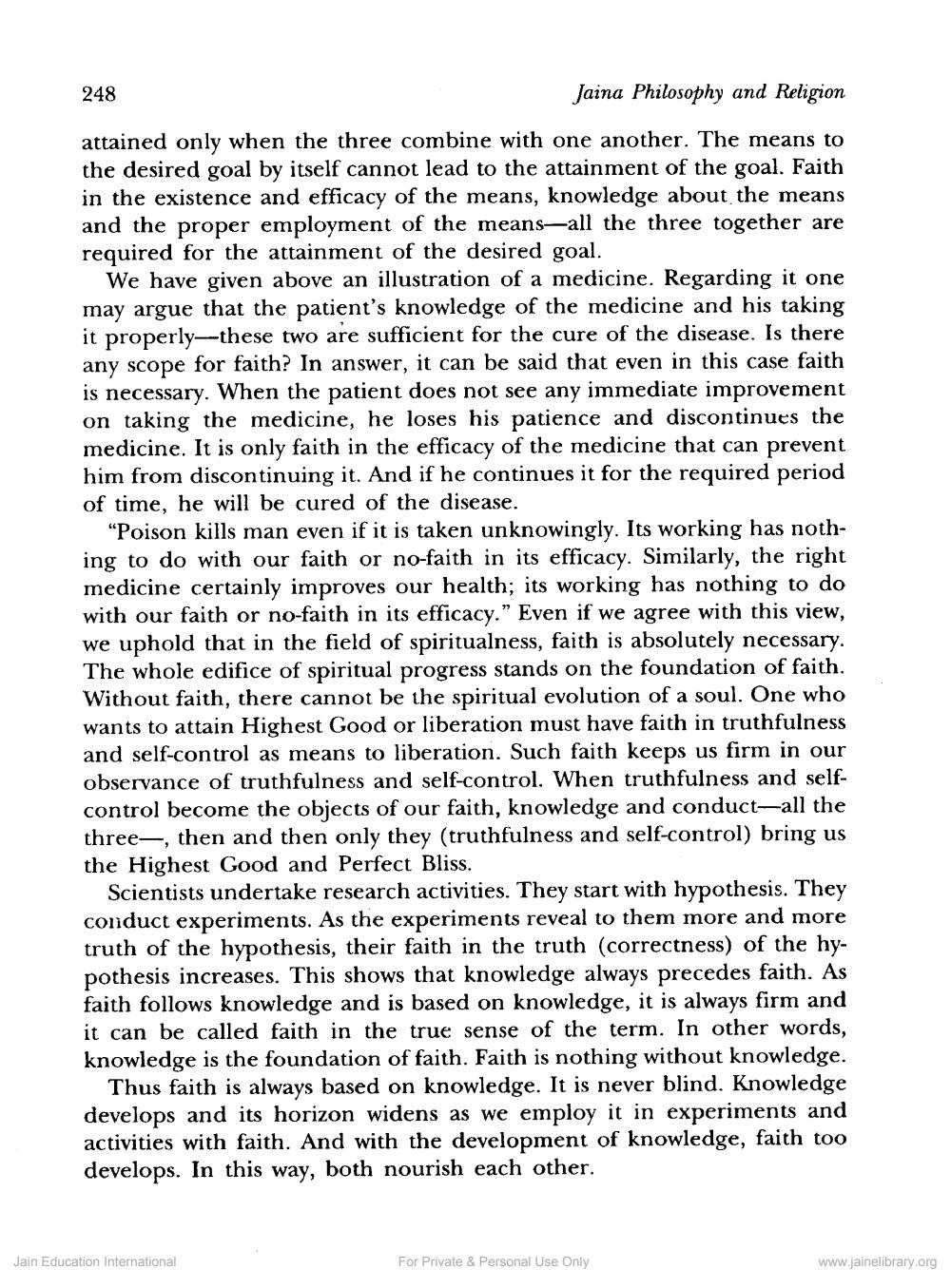________________
248
Jaina Philosophy and Religion
attained only when the three combine with one another. The means to the desired goal by itself cannot lead to the attainment of the goal. Faith in the existence and efficacy of the means, knowledge about the means and the proper employment of the means—all the three together are required for the attainment of the desired goal.
We have given above an illustration of a medicine. Regarding it one may argue that the patient's knowledge of the medicine and his taking it properly-these two are sufficient for the cure of the disease. Is there any scope for faith? In answer, it can be said that even in this case faith is necessary. When the patient does not see any immediate improvement on taking the medicine, he loses his patience and discontinues the medicine. It is only faith in the efficacy of the medicine that can prevent him from discontinuing it. And if he continues it for the required period of time, he will be cured of the disease.
"Poison kills man even if it is taken unknowingly. Its working has nothing to do with our faith or no-faith in its efficacy. Similarly, the right medicine certainly improves our health; its working has nothing to do with our faith or no-faith in its efficacy.” Even if we agree with this view, we uphold that in the field of spiritualness, faith is absolutely necessary. The whole edifice of spiritual progress stands on the foundation of faith. Without faith, there cannot be the spiritual evolution of a soul. One who wants to attain Highest Good or liberation must have faith in truthfulness and self-control as means to liberation. Such faith keeps us firm in our observance of truthfulness and self-control. When truthfulness and selfcontrol become the objects of our faith, knowledge and conduct-all the three-, then and then only they (truthfulness and self-control) bring us the Highest Good and Perfect Bliss.
Scientists undertake research activities. They start with hypothesis. They conduct experiments. As the experiments reveal to them more and more truth of the hypothesis, their faith in the truth (correctness) of the hypothesis increases. This shows that knowledge always precedes faith. As
Age and is based on knowledge, it is always firm and it can be called faith in the true sense of the term. In other words, knowledge is the foundation of faith. Faith is nothing without knowledge.
Thus faith is always based on knowledge. It is never blind. Knowledge develops and its horizon widens as we employ it in experiments and activities with faith. And with the development of knowledge, faith too develops. In this way, both nourish each other.
Jain Education International
For Private & Personal Use Only
www.jainelibrary.org




